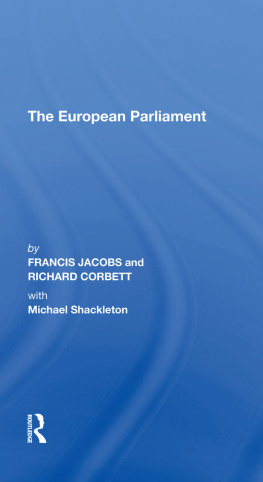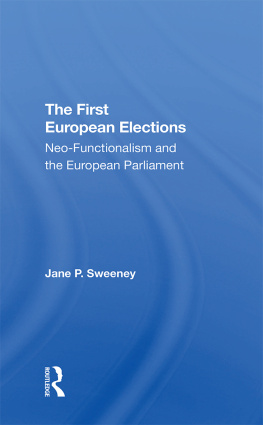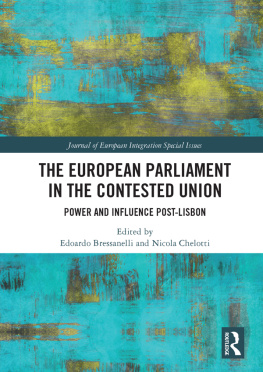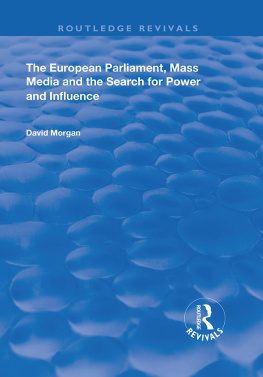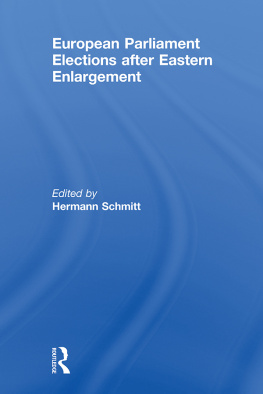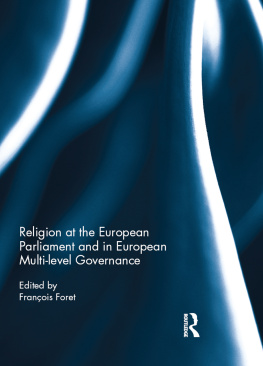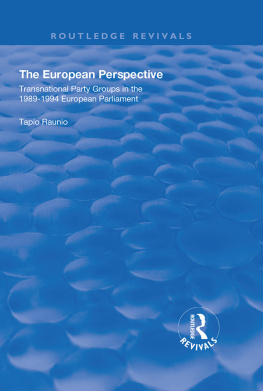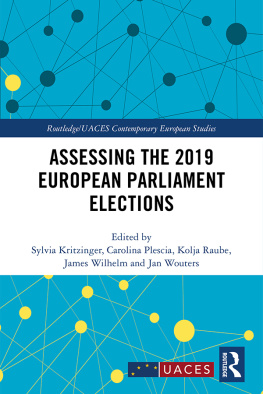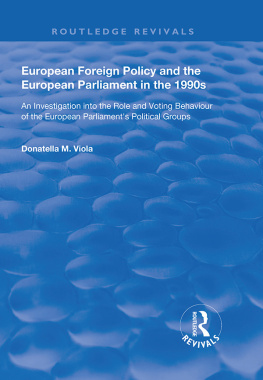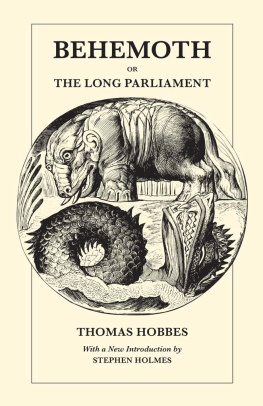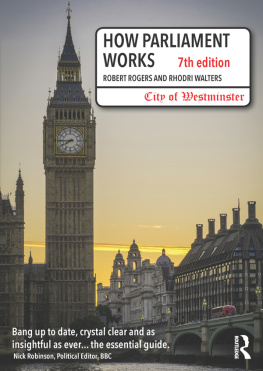THE EUROPEAN PARLIAMENT
The European Parliament
by
Francis Jacobs
and
Richard Corbett
with
Michael Shackleton
First published 1990 by Westview Press, Inc.
Published 2019 by Routledge
52 Vanderbilt Avenue, New York, NY 10017
2 Park Square, Milton Park, Abingdon, Oxon OX14 4RN
Routledge is an imprint of the Taylor & Francis Group, an informa business
Copyright 1990 Longman Group UK Limited
All rights reserved. No part of this book may be reprinted or reproduced or utilised in any form or by any electronic, mechanical, or other means, now known or hereafter invented, including photocopying and recording, or in any information storage or retrieval system, without permission in writing from the publishers.
Notice:
Product or corporate names may be trademarks or registered trademarks, and are used only for identification and explanation without intent to infringe.
British Library Cataloguing in Publication Data
Jacobs, Francis. (Francis Brendan), 1951
The European Parliament.
1. European. Parliament
I. Title II. Corbett, Richard
341.2424
Library of Congress Cataloging-in-Publication Data
Jacobs, Francis Brendan, 1951
The European Parliament / by Francis Jacobs and Richard Corbett.
p. cm.
ISBN 0-8133-1210-8
1. European Parliament. I. Corbett, Richard II. Title.
JN36. J33 1990
341.24'24do20
90-44535
CIP
ISBN 13:978-0-367-29189-1 (hbk)
Dedication
To Susan and Anne
As the two British Vice-Presidents of the European Parliament we welcome the appearance of this excellent and timely book, the first comprehensive survey for many years in the English language of the structure, working methods and evolving powers of the European Parliament.
Most Member States now recognize that they can achieve political and economic results through the European Community which even the most powerful of them could never achieve alone. This has been the motivating force with the 1992 programme and the further pooling of sovereignty which was necessary to bring it about. But every successful step forward brings a demand for more and already the Council, Commission and Parliament are looking forward to Economic and Monetary Union and to the further constitutional changes which that will need
The structures, procedures and decision-taking mechanisms laid down as a result of these debates will be part of the constitutional system of a European Union by the next century.
I he Parliament is the political dynamo in this process since the Council has no power of initiative and the Commission has no political base. And the Parliament wants in law as well as in practice proper powers of legislation and scrutiny and powers of appointment or confirmation of key administrative posts. It wants to eliminate the "democratic deficit", to recover at European level the powers of national parliaments which have disappeared into a bureaucratic black hole.
This book explains the state of the art in the European Parliament. It is eminently readable, having avoided an overly academic or legalistic approach, and enables the reader to get a "flavour" of the Parliament. It is up to date with the most recent developments in the fascinating evolution of this unique institution.
Sir Fred Catherwood, MEP
(Conservative)
Vice President
European Parliament
David Martin, MEP
(Labour)
Vice President
European Parliament
The authors' main acknowledgement as regards the content of this book is to Mike Shackleton, who not only drafted the chapter on the budget, and redrafted the first and last chapters of the book, but read through the rest of the text and made valuable suggestions throughout. At editing sessions he was a fully-fledged member of the team.
A number of other colleagues and friends made helpful comments on individual sections of the book. Particular thanks to Kieran Bradley, who read large sections of the text, and to Benoit Woringer and Roger Glass, who contributed their specific expertise. Any errors, of course, are the coauthors' responsibility alone.
Our other main acknowledgements are to Georgina Packer, Caroline Wood, Margaret Buchanan and Majella McCone who typed (and retyped) the text rapidly and efficiently, an achievement whose true significance can only be appreciated by those who have endured the illegible scrawl and hieroglyphics passed off as writing by the co-authors.
A word of thanks to Michel Beiger and his hospital staff at the caf-restaurant "La Vignette" in Strasbourg, at which many of the final editing sessions took place, with papers and notes strewn among the delicious food and bottles of Pinot Noir.
An additional plea for indulgence from Hannah and Sophie, our respective daughters, both of whom were born during the project, and who were deprived of more of their fathers' company and attention than they should have been!
Finally, the co-authors would like to emphasize that the views expressed in this book are theirs alone, and do not necessarily reflect those of the Parliament or of its members.
The publishers are grateful to the UK Press and Information Office of the European Parliament for providing the seating plan of the Parliament on p. xxi and the maps on pp. xx and 270.
The European Parliament is the first, and so far the only experiment in transnational democracy. No other institution in the world brings together under one roof representatives from different states (at present 518 from 12 states), who have been directly elected to that institution and who have been given a range of legally-entrenched powers. Nowhere is there an equivalent body, eager both to exercise its powers beyond the reach of individual governments and to extend its influence over the decisions that are taken above the national level.
At the same time, the importance of the European Community as a whole is growing. Particularly since the mid-1980s when the aim of creating a Single Market by 1992 was agreed by the Member States, there has been increasing debate about the broader consequences of such a market and a general willingness to go beyond it to economic and monetary union. What role will the Parliament play as the Community moves towards a higher level of integration? Many argue that there is already a severe "democratic deficit" in the Community with too many decisions taken behind closed doors, often without the express approval of the Parliament. The broader and the more controversial the decisions to be taken, the more critical it will be to reassess the position of the Parliament.
But what kind of institution is the Parliament? How does it work and what sort of powers does it possess? This book will explore the answers to these questions. Three introductory chapters sketch out the institutional and historical context of the institution and explain how the Parliament is elected, where and when it meets and the languages that it uses. Two main sections follow: one considers the structure and operation of the Parliament, the other examines the range of its powers.
The first of these (Part II) describes the work of individual members of the European Parliament, its organization into Political Groups, and how it is led. It then examines the Parliament's committee structure, how its plenaries are run, and reviews the unfamiliar but growing phenomenon of intergroups. It concludes with a brief description of Parliament's secretariat.


